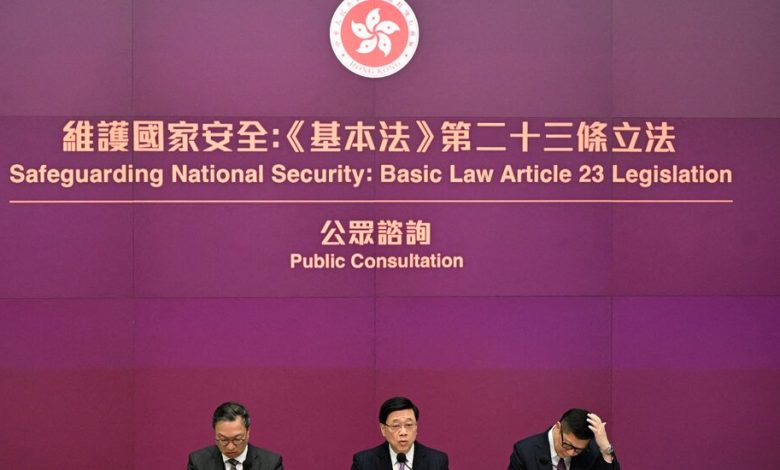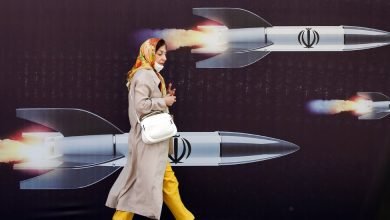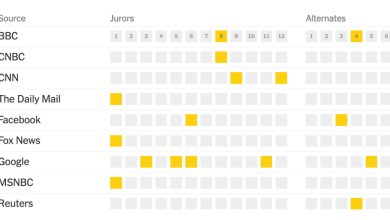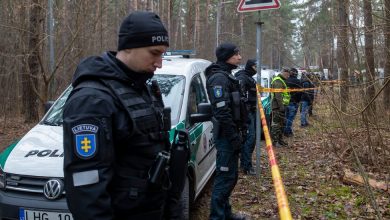With Unusual Speed, Hong Kong Pushes Strict New Security Law

Under pressure from Beijing, officials in Hong Kong are scrambling to pass a long-shelved national security law that could impose life imprisonment for treason, insurrection and colluding with external forces, stiff penalties aimed at further curbing dissent in the Asian financial center.
The law known as Article 23 has long been a source of public discontent in Hong Kong, a former British colony that had been promised certain freedoms when it was returned to Chinese rule in 1997. Now, it is expected to be enacted with unusual speed in the coming weeks.
China’s Communist Party officials, who have long pressed the city to push through this law, appeared in recent days to make their urgency clear. After meeting with a senior Chinese official in charge of Hong Kong, the city’s top leader, John Lee, reportedly cut short his visit to Beijing to return to the city, vowing to get the law “enacted as soon as possible.” The Hong Kong legislature and Mr. Lee’s cabinet, the Executive Council, hastily called meetings to discuss the law.
The full draft of the law was only made public for the first time on Friday, as lawmakers began to review it. It targets five offenses: treason, insurrection, sabotage, external interference, and theft of state secrets and espionage.
Mr. Lee said the law is necessary to close gaps in an existing national security law imposed by Beijing in 2020 that was used to quash pro-democracy protests and jail opposition lawmakers and activists. Mr. Lee has depicted Hong Kong as a city under mounting national security threats, including from American and British spy agencies.
Critics say the law will stifle more freedoms in the city of 7.5 million people by curbing their right to speech and protest, while also further diminishing the autonomy Hong Kong is granted under a “one country, two systems” formula with China.





